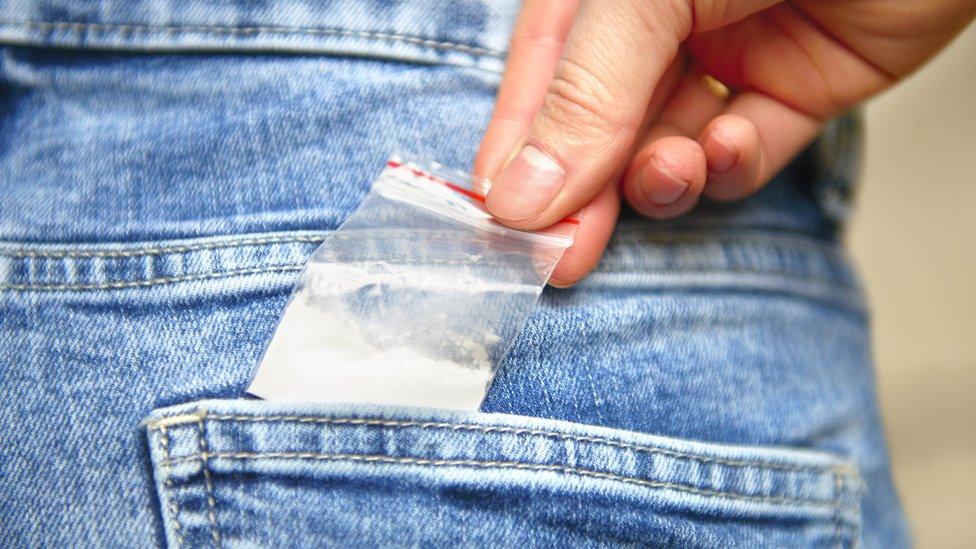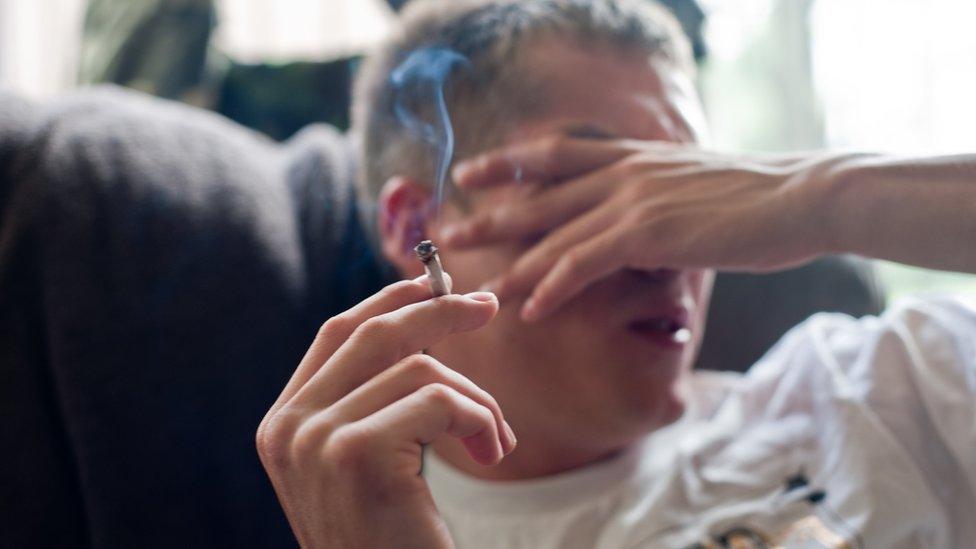One in 10 teens in UK has tried hard drugs
- Published
- comments

Among 17-year-olds in the UK, one in 10 will have used hard drugs, such as ketamine and cocaine, a study suggests.
The University College London research also showed nearly a third of 17-year-olds had tried cannabis and more than half admitted to binge-drinking alcohol.
Almost 20,000 young people, born between 2000 and 2002, were surveyed as part of the Millennium Cohort Study.
Drug-use rates were higher among white teens than black teens.
A quarter of 17-year-olds also said they had assaulted someone, including shoving, slapping or punching another person over the previous 12 months.
But this figure had fallen by seven percentage points from when the tracking survey was last conducted, when participants were aged 14.
A similar study, which surveyed Britons born in the late 1980s when they were teenagers, found similar rates of alcohol consumption, but slightly higher rates of cannabis use.
According to the Office for National Statistics, overall drug use among 16-24 year olds in 2020 was much lower, external than it was in the late 1990s.
The latest wave of the Millennium Cohort Study, intended to record a "detailed portrait of the children of the new century", was undertaken between 2018 and 2019 when participants were 17-years-old.
Levels of vandalism and weapon use were similar to when these young people were 14, but shoplifting rose from 4% in early adolescence to 7% a few years later.
'A part of growing up'
Hard drug use was twice as prevalent among white teenagers than their BAME counterparts, while binge-drinking was almost three times higher.
This list of hard drugs included cocaine, acid, ecstasy, speed, ketamine and any other psychoactive substances.
Among white teenagers, 11% reported using harder drugs compared with 5% for their BAME counterparts, and 59% of white teenagers had engaged in binge-drinking alcohol, compared with 21% of BAME teenagers.
Cannabis use, hard drug taking and binge-drinking were also considerably higher among young men than women.

Almost a third of 17-year-olds admitted to trying cannabis
Emla Fitzsimons from the UCL Centre for Longitudinal Studies, who co-authored the study, said: "Experimental and risk-taking behaviours are an expected part of growing up."
"Nevertheless, behaviours in adolescence can be a cause for concern as they can have adverse long-term consequences for individuals' health and wellbeing, and their social and economic outcomes."
Young people with graduate parents were more likely to report alcohol use and binge drinking than those whose parents did not have degrees.
But rates of drug use remained similar regardless of parents' educational qualifications.
The study found that as these young people "approached adulthood, reports of anti-social behaviours mostly remained stable or declined compared to rates at age 14".
UCL's Aase Villadsen said she was surprised how the findings showed "the peak in anti-social behaviours in this generation has been reached earlier than usual and rates have already started to come down by age 17".
"This is a positive and will potentially help to improve the future social and economic prospects of Generation Z," said Dr Villadsen.
Prof Fitzsimons added: "It remains to be seen how the Covid-19 pandemic has affected engagement in these behaviours."
BBC Action Line: Advice and support about alcohol or drug problems